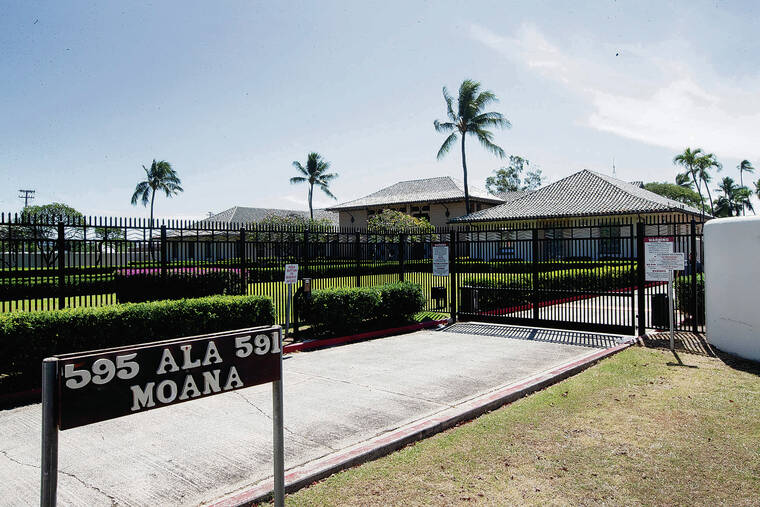LIHUE — The Historic County Building in Lihue will be red and blue all over again today. But it has nothing to do with patriotism.
Bill 2491, dealing with genetically modified organisms and pesticide disclosure, enters its final phase today, likely attracting both sides of the issue — red shirts for the bill and blue shirts against it — to the Kauai County Council chambers.
The full council will pick up last month’s recommendation (4-1) of the council’s Economic Development (Agriculture) Committee to pass a watered-down version of the bill.
Before reaching full council, the bill went through lengthy meetings — first reading, a public hearing ending at 1 a.m. and a handful of committee meetings — mainly due to a legion of public speakers.
Today, the administration is scheduled to make a presentation on the operational impacts Bill 2491 would have on the county, including input from Managing Director Gary Heu, County Attorney Al Castillo, Economic Development Director George Costa and County Engineer Larry Dill.
Before the bill was amended, Dill estimated the county would spend $620,000 in initial costs associated with the bill, and about $711,000 each year thereafter, in a facility, vehicles, salaries and benefits.
Council Chair Jay Furfaro said additional contract work for testing and studies could cost the county another $200,000 per year. An Environmental Impact Statement requirement — which has been removed from the bill — would cost the county $2 million, spread over two years.
Today’s meeting will also include deliberation and action on a resolution to implement an Environmental and Public Health Impacts Study — via formation of a pesticide and genetic engineering Joint Fact Finding Group — as a trade off from removing the EIS requirement.
Additionally, two executive sessions could result in the release of the county attorney’s written legal review of Bill 2491, and the disclosure of a Sept. 26 county attorney’s opinion related to a “request for legal opinion relating to whether the council can establish laws banning the use of atrazine.”
Atrazine, the most widely used herbicide in the United States, has been banned in the European Union since 2003, following groundwater contamination concerns.
The county attorney’s opinion, if released, would be the only legal review available so far on Bill 2491.
Furfaro said he unsuccessfully sought in July a legal opinion from state Attorney General David Louie.
In an Aug. 15 letter, Louie declined to give an opinion on the county bill.
Furfaro said it is unlikely the council will come to a final vote on the bill today. The meeting starts at 8:30 a.m.
Because of an executive session scheduled for 2 p.m., regarding a separate matter involving the county auditor, he said he will likely recess the meeting at lunch time.
By recessing the meeting, rather than adjourning it, Furfaro said he will be able to continue the meeting on a different day without having to post it six days in advance, in compliance with the state Sunshine Law.
• Léo Azambuja, staff writer, can be reached at 245-0452 or lazambuja@thegardenisland.com




